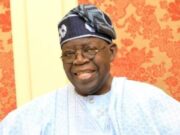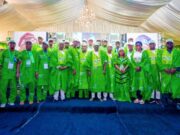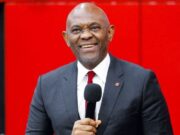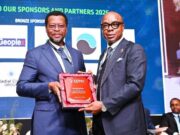The President Bola Tinubu-led federal government has launched the Revised National Employment Policy 2005 to lift Nigerians out of poverty.
The Minister of Labour and Employment, Muhammad Maigari Dingyadi who launched the policy, explained that the revised policy offers a bold, inclusive and future-fit solutions to the nation’s employment challenges.
He noted that the policy would provide a labour market that delivers inclusive growth, equity, productivity, and sustainability for every Nigerian.
The minister said that the review was necessitated by Nigeria’s employment landscape, which has been challenged by high youth unemployment, underemployment, informality, gender disparities, and regional inequalities.
He recalled that the recent COVID-19 pandemic further exposed Nigeria’s vulnerabilities, and the need for proactive, adaptive, and progressive employment policies.
Beyond the pandemic, he noted that the global world of work is being reshaped by automation, climate change, digitisation, demographic shifts, and geopolitical uncertainties, making it imperative to respond, not with business as-usual frameworks, but with bold, inclusive, and future-fit solutions, which the Revised NEP represents.
Dingyadi said, “The NEP 2025 is not a stand-alone policy. It is a strategic compass aligned with Nigeria’s National Development Plan (2021-2025), ECOWAS Labour and Employment Protocols, the African Union’s Agenda 2063, the Sustainable Development Goals, and the International Labour Organisation’s Future of Work Initiative.
“The NEP 2025 is fully aligned with the Renewed Hope Agenda of President Bola Ahmed Tinubu. At the heart of the Renewed Hope Agenda is a national commitment to lift millions of Nigerians out of poverty through job creation, youth empowerment, enterprise development, digital innovation, and inclusive growth. This policy offers a coherent roadmap to actualise those goals by promoting decent work, formalising the informal economy, boosting employability, and unlocking emerging sectors for job creation.”
The minister said that in line with President Tinubu’s vision, the NEP identifies employment not only as an economic objective, but also as a tool for social justice, national security, and sustainable development.
He explained that the policy provides the strategic direction for all employment-related initiatives under the administration, ensuring synergy across government organisations and alignment with national priorities, while also ensuring inclusivity for the youth, women, and persons with disabilities.
He stated that the revised NEP provides practical guidelines and targeted strategies to address employment challenges, and also introduces measurable indicators and timelines to enable evidence-based implementation and monitoring.
Dingyadi noted that the NEP 2025 significantly recognises the evolving shape of the Nigerian economy, integrating emerging sectors such as Digital Economy, Blue Economy, Green Economy, and Orange Economy.
He said that the policy also recognises Remote Work (Telework) as “an increasingly viable and flexible mode of employment, especially for persons with disabilities, women with care responsibilities, and others facing mobility constraints.”
He called for collective efforts to bring the policy to life, including clear political will, sustained financing, institutional accountability, and most of all, partnerships.
While calling on state governments to domesticate the NEP, and align their job creation strategies with this national framework, he urged the private sector to collaborate with government in designing labour market-responsive skills programmes, investing in employment-rich sectors, and supporting workplace innovation and formalisation.
He solicited the continued support of development partners, which will be critical in strengthening national capacities, building employment data systems, and ensuring inclusivity in the labour market.
The minister called on the youth and workers’ organisations to own the policy and engage with it, monitor its implementation, and hold the government accountable.
Director of the International Labour Organisation (ILO) Country Office for Nigeria, Ghana, Liberia, Sierra Leone, and Liaison Office for ECOWAS, Vanessa Phala underscored the importance of promoting policy coherence across employment, education, social protection, labour migration, and skills.
She said, “This is essential to ensure that lifelong learning and employment-intensive investments are systematically incorporated to advance sustainable development.”
Represented by Austin Erameh, Phala congratulated the federal government for leading the revision and the launch of the national employment policy.
She said the revised NEP would address Nigeria’s labour market challenges and decent work deficits such as unemployment, underemployment, and job quality by fostering sustainable economic growth, increasing workforce participation, and elevating job standards across multiple sectors.
Credit: thenationonlineng.net









































































